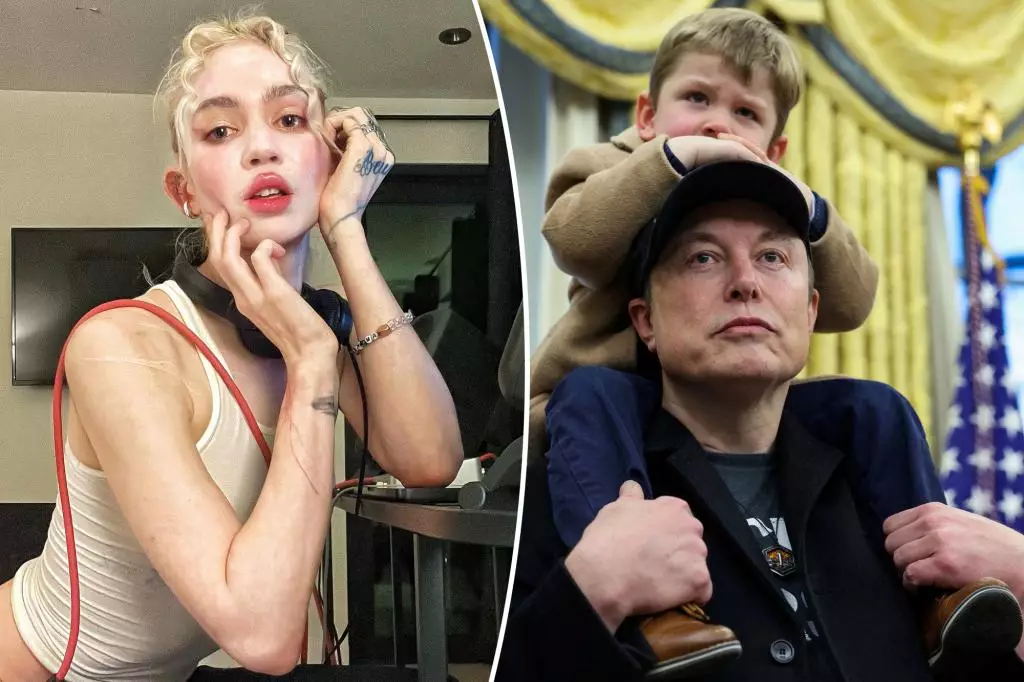In an era where social media reigns supreme, the question of child privacy has come into sharp focus, especially for those in the public eye. Recently, Grimes voiced her deep concerns regarding the exposure of her three children to the internet, following an incident where Elon Musk took their 4-year-old son to a White House media briefing. The Canadian artist’s heartfelt plea on X (formerly Twitter) shines a spotlight on the ongoing conflict between personal privacy and public attention in celebrity culture. “I have tried begging the public and my kids’ dad to keep them offline,” she lamented, illustrating the profound struggle many parents face in the digital age.
Grimes detailed her daily turmoil over her children’s public lives, stating, “The state of my children’s lives being public is of grave concern to me.” This resonates deeply; her candid expression of concern invites us to examine the implications of fame—not just for celebrities, but for their children who have little say in the matter.
The Limitations of Legal Protections
The challenges Grimes faces are exacerbated by what she perceives as inadequate legal protections for child privacy. “I would hope there was some law that would allow a parent to veto small children from living public lives,” she stated, revealing her distrust in existing legal frameworks. This skepticism is not unfounded; in a world driven by clicks and shares, legal avenues can feel overwhelming and insufficient.
Parents navigating the complexities of digital exposure find themselves in a precarious position. The notion that legal protective measures can safeguard children from the pernicious effects of internet fame feels frustratingly out of reach for many parents, including Grimes. The reality that she must grapple with both her children’s safety and the implications of their father’s high-profile status casts a shadow over their family dynamic.
Public Accountability and the Ethics of Fame
Grimes’ struggle highlights a broader ethical debate surrounding the documentation of children of celebrities. In a previous instance, she publicly criticized Musk for bringing their son to a White House event, clarifying that she learned of her child’s public appearance through a fan’s notification. This incident raises vital questions about consent in a society that often prizes visibility over privacy. Is it appropriate to subject vulnerable children to public scrutiny, even inadvertently? Grimes’ bold stance against the unwarranted exposure of her children is a clarion call for advocating ethical practices around privacy.
Additionally, Grimes has emphasized that fame should come with consent. “I think fame is something you should consent to,” she articulated, encapsulating a principle that should extend beyond adults to the unconsenting minors caught in this maelstrom of public life.
The Emotional Toll of a Public Life
As Grimes navigates her relationship with Musk and public scrutiny, her emotional burden becomes painfully evident. Beyond the lawsuits and public disagreements, there is an underlying narrative of a mother in turmoil, fearing the long-term impact of an online presence on her children. Every post, every mention, and every photo contributes to a digital footprint that her children cannot escape.
While Musk and Grimes’ shared parenting journey can seem fraught with conflict, it speaks volumes about the complexity of co-parenting amidst high stakes and public visibility. Grimes’ candid reflections challenge us to consider the ethical responsibilities of public figures and their obligations to protect their families from the suffocating scrutiny of the digital world.

